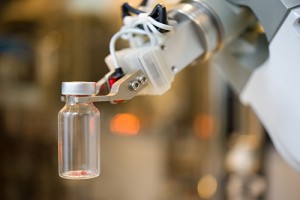 I am currently enrolled in a MOOC on machine learning and am intrigued by the integral role computers played in decoding DNA sequencing and their ongoing role in medical research. Machine learning focuses on learning through repetition, pattern recognition, and algorithms as opposed to programmed instructions. The aim is for computers to learn from previous experiences and add that knowledge to a growing database, much as humans do. As that database grows, machines can take on even more complex tasks.
I am currently enrolled in a MOOC on machine learning and am intrigued by the integral role computers played in decoding DNA sequencing and their ongoing role in medical research. Machine learning focuses on learning through repetition, pattern recognition, and algorithms as opposed to programmed instructions. The aim is for computers to learn from previous experiences and add that knowledge to a growing database, much as humans do. As that database grows, machines can take on even more complex tasks.
DNA decoding is just one application in the field of machine learning. I am curious about what other areas, particularly in medicine, will benefit from these algorithms. Can a computer, or group of computers, do cheaper and faster diagnostics? It turns out others are asking these same questions and exploring the benefits and applications of machine learning. What are the benefits for us as patients and how does it change the health care field?
Automated Sampling
As part of a drive to simplify procedures and cut costs, startups such as Theranos developed automated procedures for blood tests. Their procedures and equipment are proprietary but involve sensors and computer algorithms to augment or replace human processing. The cost of their tests is much lower than traditional tests and a patient can get quicker results. As of this writing, the company is under intense scrutiny to reveal their specific technologies and processes. Federal regulatory agencies, particularly those providing Medicaid, are trying to ensure the testing process is safe and the results are accurate. As with any new technology or process, the consumer must go in with eyes open and understand the risks involved. One question to ask is how much do I trust the results? If patients can stop by a drugstore for a blood test, how and when do physicians get involved? With ready access to testing, will patients become more involved in their own health care and treatment decisions?
Radiology
In a recent article on digital diagnoses, it is estimated that radiologists, at least in Australia, review seven times more cases than they did five years ago. As with a pathologist providing lab analysis, all of these reports rely on pattern recognition and they take a great deal of skill and experience to do well. As we make advances in machine learning and artificial intelligence, computers can take over some of that workload. If I were a radiologist, I think I would welcome the chance to offload some of my tasks. I am not suggesting that these highly trained medical professionals will be replaced, but there is room for assistance through technology.
Thoughts
I wrote a blog post last year on robots in the surgery and I asked if you would trust a surgeon-directed robot to operate on you. What if the human-robot team had a higher success rate than a human? These same questions apply to medical tests read and interpreted by a computer. Would you trust the diagnosis more or less than if it came solely from a highly trained doctor or technician?
To me it comes down to a matter of trust. Do I trust a machine to take on some of my tasks and perform some of the tests that were previously done solely by humans? With machine learning, computers improve through iterations and experience. In other words, they learn from their mistakes and successes, just like we do. This is a brave new world. Are you ready to embrace it? Let me know your thoughts.
Kelly Brown is an IT professional and assistant professor of practice for the UO Applied Information Management Master’s Degree Program. He writes about IT and business topics that keep him up at night.



thanks a lot for information